It’s been a little more than a week since Slate published a piece that — across your Old Professor’s little corner of the Internet, anyway — touched off a firestorm. Ruth Graham’s article is cheekily titled ”Against YA,” but the click-baity headline is even more blunt: ”Yes, Adults Should Be Embarrassed About Reading Literature Written For Children.” Graham throws down in no uncertain terms, exhorting grown-ups to take off the training wheels and read something age-appropriate. ”[T]he enjoyment of reading this stuff has to do with escapism, instant gratification, and nostalgia,” she says. ”Fellow grown-ups, at the risk of sounding snobbish and joyless and old, we are better than this.”
Though her presentation is intentionally provocative, it’s not hard to sympathize with Graham’s argument. Young Adult fiction dominates the bestseller lists, and film franchises based on YA series — that is, the ones that aren’t based on comic books, another form of literature originally meant for children that’s been co-opted by grown-ups — have been reaping box office gold. But it’s not The Kids who are buying all those books; more than half the market share for YA belongs to people 18 and older.
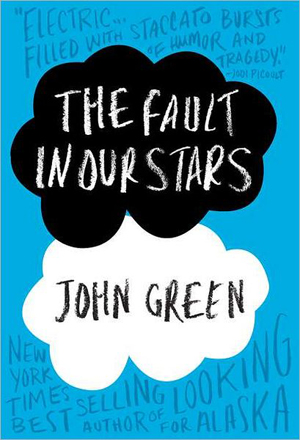 The Harry Potter series gets credit (or blame) for mainstreaming the phenomenon of adults reading juvenile fiction. The UK publishers explicitly acknowledged the split audience, even issuing the books in different editions, with different jackets, for mature readers. But adults have not needed any special dispensation to tear through more recent blockbusters like The Hunger Games, Twilight, or John Green’s love-in-the-time-of-cancer weepie The Fault In Our Stars, which has just been adapted for film.
The Harry Potter series gets credit (or blame) for mainstreaming the phenomenon of adults reading juvenile fiction. The UK publishers explicitly acknowledged the split audience, even issuing the books in different editions, with different jackets, for mature readers. But adults have not needed any special dispensation to tear through more recent blockbusters like The Hunger Games, Twilight, or John Green’s love-in-the-time-of-cancer weepie The Fault In Our Stars, which has just been adapted for film.
Meanwhile, Ridley Scott still can’t get that movie of Blood Meridian made. What gives?
It sometimes seems to me (and, I would wager, to Ruth Graham) that the expansion of one market segment — of one model of pleasure, driven by escapism and nostalgia — comes at the expense of another, which aims at different, more difficult pleasures. Advances in YA are not literally driving adult literary fiction off of bookstore shelves, of course; but as Graham neatly sums it up, ”Life is so short, and the list of truly great books for adults is so long.”
It’s a reasonable point. So naturally, people started losing their fucking minds.
Turns out that people invest an awful lot of their self-image in what they read, and they get really uptight when you diss their favorite books — perceiving it an attack upon their very persons. Over at the Comics Reporter, critic Tom Spurgeon characterized it as ”the idea that someone having a different opinion about our choices and values, even literary ones, is an assault on personal identity.”
In response to that perceived assault, YA fans adopted a siege mentality — which, sadly, often did their cause no favors. Salon’s Laura Miller, for instance — a critic whose work I often admire — responded by rushing to ”defend” The Fault In Our Stars from those who, in her view, have misread it. This, frankly, tended to prove Ruth Graham’s point for her: What, after all, is more emblematically adolescent than the tortured cry of ”You just don’t understand“? Meanwhile, Gawker’s Michelle Dean actually wrote out her heavy sigh (no doubts accompanied by a between-the-lines eye-roll) while insisting that Graham’s thesis was just, like, her opinion, man: ”The argument Ruth Graham makes is either muddled or obvious. . . . [S]he seems to position her personal taste as obviously being based in objective standard.”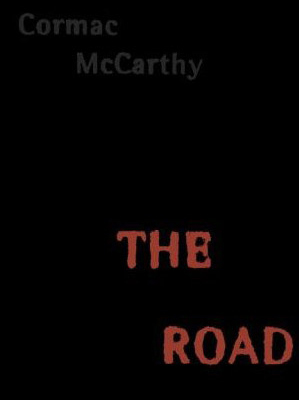
After several paragraphs touting the virtues of YA books, including (again) The Fault In Our Stars, Dean seemed to take aim at the very notion of the elevated pleasures of adult literature. To Graham’s assertion that the YA market owes its popularity to instant gratification, Dean sniffs that ”pretty much everyone, in my experience, reads mostly to console themselves. That consolation takes different forms for different people: escapism, challenge, learning, self-indulgence.”
So, apparently, reading The Road and contemplating the question of whether human decency still has any absolute value in an irredeemably fallen world is — in Michelle Dean’s experience — totally the same thing as being on Team Edward because — omigod — he is just, like, the dreamiest. Take that, Cormac McCarthy! You’re not all you’re cracked up to be!
As the conversation on blogs and Twitter doubled back on itself, it grew frustratingly apparent that people of good will were talking past each other. That’s partially attributable to defensive posturing. But part of it, I realized, was a certain semantic viscosity — which is to say, our terms were getting a wee bit slippery. ”Young Adult,” after all, is a demographic, not a genre; it can (and does) encompass coming-of-age stories, social comedy, class-conscious romances, ”problem” novels, sci-fi dystopias — so many sci-fi dystopias! — and lots more besides. Can ”YA” truly be said to even exist, except as a retailing category?
In her original article, Ruth Graham had made some disparaging noises about YA’s emotional tidiness and unambiguous resolutions, but that struck me as an unsatisfactory definition; there are so many qualifiers and exceptions as to make it meaningless. Looking for better working definitions, I briefly kicked around the precept that any book written from a teenager’s point-of-view is by definition an unreliable narrator story — because of the heightened emotional intensity of adolescence — but that YA books as a rule do not acknowledge that unreliability.
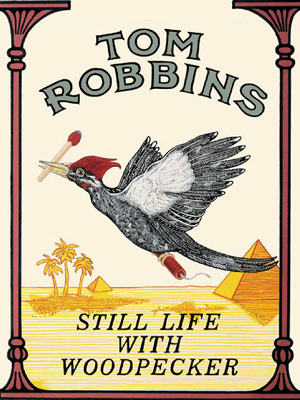 Not a bad axiom, and true enough insofar as it goes; but it focused exclusively on the writing side of things. Literature lives not on the page, but in the hearts and minds of readers. To understand the books, we must understand the audience — teenaged or not — and their experience of those books. I circled back to Graham’s reflection on the books she loved as a teenager; she says that they ”provided some of the most intense reading experiences of my life. I have no urge to go back and re-read them, but those books helped turn me into the reader I am today. It’s just that today, I am a different reader“ (emphasis mine). What we’re looking for was something not only in the nature of writing about teenagers, but something intrinsic to youth itself, and about the way we process literature at that age. Today, I am a different reader: What sort of reader was I then, all those yesterdays ago?
Not a bad axiom, and true enough insofar as it goes; but it focused exclusively on the writing side of things. Literature lives not on the page, but in the hearts and minds of readers. To understand the books, we must understand the audience — teenaged or not — and their experience of those books. I circled back to Graham’s reflection on the books she loved as a teenager; she says that they ”provided some of the most intense reading experiences of my life. I have no urge to go back and re-read them, but those books helped turn me into the reader I am today. It’s just that today, I am a different reader“ (emphasis mine). What we’re looking for was something not only in the nature of writing about teenagers, but something intrinsic to youth itself, and about the way we process literature at that age. Today, I am a different reader: What sort of reader was I then, all those yesterdays ago?
That question brought me, by roundabout ways, to Tom Robbins.
I read my share of Robbins when I was in my teens and early twenties. Some books, like Another Roadside Attraction and Still Life With Woodpecker, I read over and over again. But I have not given his work a single thought in twenty years or more. It took an unrelated mention of the man’s new memoir to make me think about it at all, for all that those books seemed very important to me when I was a young person. You’ll never find Tom Robbins shelved in the Young Adult section; his books have too much sex and drugs to pass muster in that company. But young adulthood is the perfect time, maybe the only time, to discover and appreciate his work.
Which raises two related questions: Why those books?
And: Why did that affection not survive the transition into adulthood?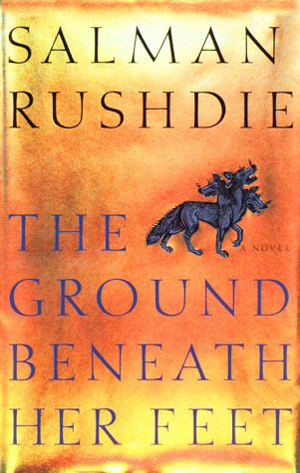
Michelle Dean writes that ”There’s a continuum there, not a rupture between completely, utterly irreconcilable kinds of books,” and she’s right. My affection for some of Robbins’ themes and tropes has persisted, even as I’ve outgrown his particular handling of them. The grotesque characters and secret histories, the yearning heroes and unattainable women, the infodumps and the extravagant, jokey conceits — you’ll find those in the work of Martin Amis, and A.S. Byatt, and a host of other smart grown-up writers, including and especially Salman Rushdie. The rock-star hero of Rushdie’s The Ground Beneath Her Feet — who has psychic premonitions of hit songs before they are written or recorded, literally tuning him in to the future of music — is a particularly Robbins-esque invention; and it’s certainly not hard to connect the first-draft Koran of The Satanic Verses to Another Roadside Attraction’s unresurrected Jesus.
Yet though they ring similar changes, the two authors do so to vastly different effect. Robbins’ readers — many (though not all) of whom are young people — often read his books as designs for living; Rushdie’s readers are mostly older, and his work read more as meditation than manifesto. So why do Rushdie’s books fall at one point on Dean’s continuum, and Robbins’ on another?
The real split, I think, is not between young readers and old, or even between good books and bad books. It’s between two modes of engagement with the reader — between books that demand to be approached on their own terms, and books that flatter the reader.
Tom Robbins’ narrative voice is impudent, conspiratorial, smart-alecky; he’s the cool uncle telling his kin all the family stories their parents would like to keep buried. He really shouldn’t be telling you all this, but, well, he likes you, Sees something in you. Some spark. And so he takes you into his confidence.
That voice, or something like it, is one that comes up again and again in books beloved by young people. Jane Austen pioneered it; Kurt Vonnegut may have perfected it. Variants of it sound out in works by Chuck Palahniuk, Neil Gaiman, Lemony Snicket, and the late Sue Townsend. It’s a voice that gives you points for being sensitive, for seeing beyond the everyday. You hear it in Catcher In the Rye. You hear it, too, in Atlas Shrugged and The Giver, in The Chocolate War and in His Dark Materials — works that compliment you on your nonconformity, on the way that you — brave reader! brave soul! — question the systems of control and authority that surround you.
You’ll note that not all of these books are explicitly written for young people; but young people fall in love with them nonetheless. And that ”falling in love,” I would argue, is the defining characteristic of the YA reading experience.
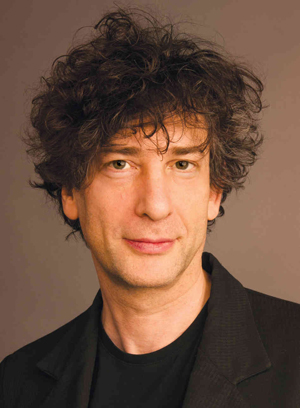 ”Falling in love” is an inherently adolescent model for processing a work of literature. The rapturous affection for a book’s virtues! The wholehearted embrace of its ideas and viewpoint! (And, of course, the obligation to defend it against all enemies, real and imagined.) Even structuring your identity around the books you read makes sense, in this context; you’re defining yourself as half of a couple, or at the very least by the company you keep.
”Falling in love” is an inherently adolescent model for processing a work of literature. The rapturous affection for a book’s virtues! The wholehearted embrace of its ideas and viewpoint! (And, of course, the obligation to defend it against all enemies, real and imagined.) Even structuring your identity around the books you read makes sense, in this context; you’re defining yourself as half of a couple, or at the very least by the company you keep.
”Falling in love” with a book is made substantially easier if you can also fall in love with the author — and the current environment allows for audiences to have their affection engaged en masse. We’re having a YA boom now, I think, precisely because the social media explosion has made it possible to weaponize a writer’s personal charisma into an instrument of branding. In a system that encourages the cult of personality, the most-adorable are the best positioned to thrive — by being amusing on YouTube and Twitter, and on elaborate websites that provide 24/7 evidence of how funny and approachable they are.
The thing is, I’m sure it’s all genuine. I’m confident that, say, John Green is a perfectly nice man. I know from experience that Neil Gaiman — another preternaturally charming author — is a terrifically nice man, selfless with his time and attention, patient and understanding. And I still enjoy his work, albeit without the unstinting fondness I once had for it; sometimes, though, I wish he’d settle down and tell the story, instead of spending so much energy being so utterly goddam delightful all the time. From an adult’s perspective, it’s almost insulting. He’s already got my attention — the question is, What’s he going to do with it?
Far be it from your Old Professor to advocate that an author withdraw from engagement with fans entirely. But it’s surely no coincidence that Cormac McCarthy and Thomas Pynchon — both of whom refuse interviews and (in Pynchon’s case) photographs — have enjoyed unbroken critical acclaim; by eschewing the machinery of branding they throw the focus squarely onto the quality of the work itself, where it belongs. If the sales and acclaim of a book become a referendum on the man, it does a disservice to both.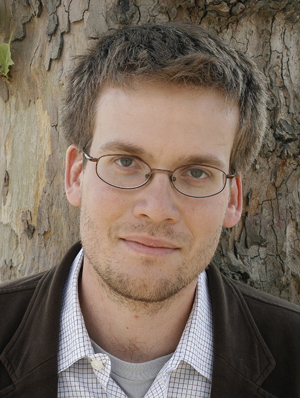
Grown-up books resist this sort of uncritical affection. Nobody ever ”fell in love” with Moby-Dick or Infinite Jest or Gravity’s Rainbow, certainly not with Blood Meridian. They’re not there to make us feel good; they’re there to shake us up, and not in a congratulatory, ”Kid, I’m gonna let you in on a big secret” kind of way. Great adult books challenge us even as they enlighten. Even a genuinely transformative, life-changing book like Doris Lessing’s The Golden Notebook is not a book with which one ”falls in love.” It’s not a crush, but a marriage. It comes into your life, changes it, and you must come to terms; one morning The Golden Notebook is sitting at your kitchen table, picking at a plate of scrambled eggs, and you realize that it will be with you for the rest of your days. That’s reading for empathy, which is pretty much the opposite of Michelle Dean’s ”reading for consolation” theory.
Now, because I have (a) two kids and (b) a curious nature, I do read a good deal of YA fiction, and some of it I even like. I don’t think there’s anything wrong with you if you enjoy the occasional Young Adult novel. But if you are a fully-grown adult who only reads YA fiction — well, then, your Old Professor must stand with Ruth Graham on this one, and humbly suggest that you may wish to reconsider your life choices.
The narcissism of adolescence — which makes us susceptible to flattery in the first place — isn’t a character flaw; it’s biologically rooted, and you can no more blame a kid for it than for her blue eyes. But what begins as a developmental adaptation can persist into adulthood as a learned behavior. It’s possible for a healthy adult to switch this faculty on and off, to enjoy being pandered to, at least occasionally, within the safe confines of the reading experience; but it is unhealthy as a default mode of engagement.
As we get older, we grow wary of the auctorial gallantry that so enthralls our younger selves. We grow distrustful of glamour; when an author pours it on, we may feel that we’re being condescended to, or patronized, or even conned. We may find that we prefer the voice of a straight shooter, who will address us as (say) Salman Rushdie addresses us, in his wry, melancholy way. Who will address us as an adult talking to other adults. Who acknowledges the scars of times and loss that we all bear, and who shares with us his own, and invites us to empathize.
It’s not joyless. We know there is still joy in the world; and knowing just how hard-fought it is, we treasure it all the more. It is the opposite of snobbish; it recognizes our common ordinariness, without blowing smoke about how special and magical we are. This is a sign not of burgeoning cynicism, but of wisdom.
Charles Dickens, who wrote for both adults and children (sometimes at the same time), wrote in A Christmas Carol that ”It is good to be children sometimes.” That’s a statement I’d endorse, with the emphasis on ”sometimes.” There’s nothing wrong with falling in love with a book, per se. But it is an experience that we outgrow — and rightly so.






Comments